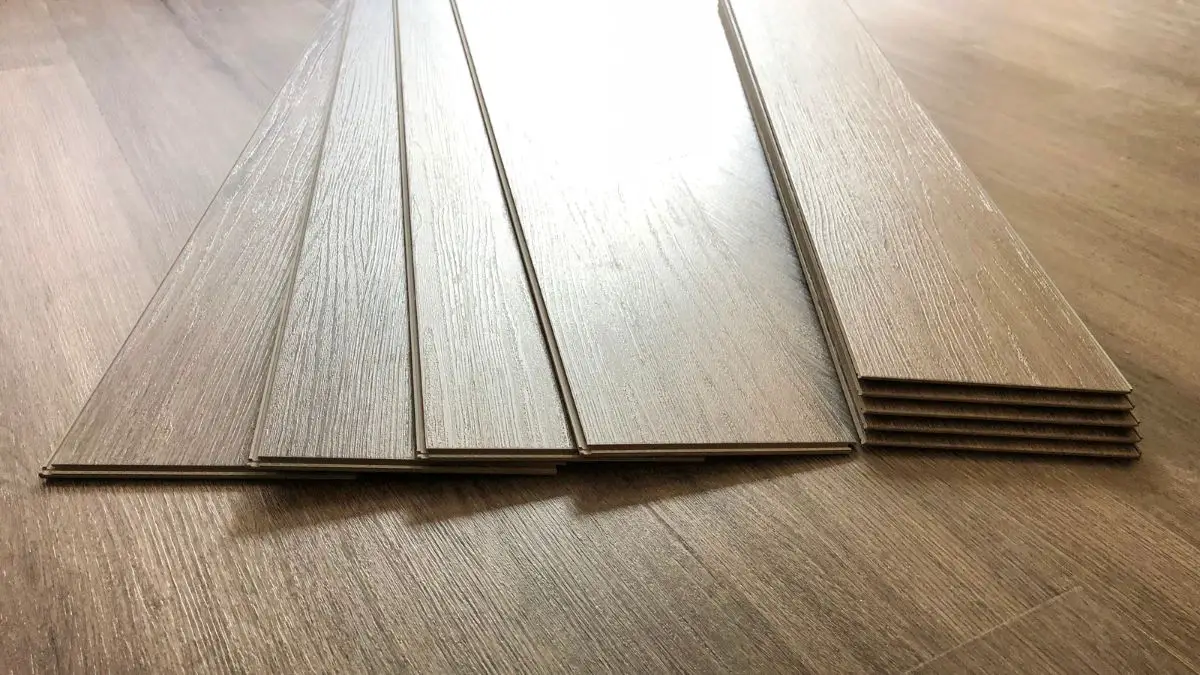If you’re considering adding new flooring to your home, you may have come across the terms EVP (Engineered Vinyl Plank) and LVP (Luxury Vinyl Plank). Both of these flooring types offer a wide range of benefits and can make for an excellent addition to your home.
In this blog, we’ll dive into the key differences between EVP and LVP flooring, as well as weigh the pros and cons of each. Let’s get started!
What is EVP?
EVP (Engineered Vinyl Plank) flooring consists of multiple layers, including a wear layer made up of vinyl and a core layer made up of wood or recycled materials.
The construction gives EVP flooring an incredibly strong and durable finish, making it more capable of withstanding high-traffic areas.
What is LVP?
Like EVP, Luxury Vinyl Plank (LVP) has a core layer of wood or recycled material.
The difference lies in the wear layer; this is made up of 100% vinyl, making it slightly thicker than EVP’s wear layer.
This gives LVP an extra moisture-resistant finish and is ideal for areas with high humidity levels.
The Key Difference Between EVP and LVP
The main difference between EVP and LVP flooring lies in the wear layer; EVP has a thinner wear layer made up of vinyl, while LVP’s is slightly thicker.
This makes LVP somewhat more resistant to moisture and humidity, making it better suited for areas with high moisture levels.
Pros and Cons of Using EVP Flooring
Advantages
High durability: EVP flooring’s multiple layers of construction make it incredibly strong and durable, making it capable of withstanding high-traffic areas.
High-quality: EVP’s wear layer has a premium finish, giving the flooring an attractive and luxurious look.
Easy to install: EVP flooring is incredibly easy to install, making it a great DIY project.
Unaffected by temperature fluctuations: EVP is not affected by changes in temperature, making it ideal for both warm and cold climates.
Soundproof: The construction of EVP flooring helps to keep noise levels down, making it ideal for apartments or homes with multiple levels.
Disadvantages
Not suitable for areas with high moisture levels: EVP may not be the best choice for areas with high moisture levels due to its thinner wear layer.
Pricey: EVP flooring is more expensive than other flooring types due to its premium finish.
Pros and Cons of Using LVP Flooring
Advantages
High durability: Like EVP, LVP flooring’s construction makes it highly durable, scratch-resistant, and low-maintenance, capable of withstanding high-traffic areas.
Moisture resistance: Due to its thicker wear layer, LVP offers increased resistance to moisture and humidity, making it ideal for areas with high moisture levels.
Easy to install: Like EVP, LVP is incredibly easy to install, making it a great DIY project.
Less pricey: LVP is slightly less expensive than EVP, making it an affordable choice.
Disadvantages
Noisy: The construction of LVP flooring can make it quite noisy when walked on.
Less durable than EVP: The thicker wear layer of LVP can make it less long-lasting than EVP flooring.
Poor thermal insulation: LVP does not have good insulation properties, meaning it may get cold to walk on during winter.
Frequently Asked Questions
Which is better, LVP vs. EVP?
It depends on your needs and budget. For example, if you’re looking for a flooring type that is durable, attractive, and easy to install, then EVP may be the better choice.
On the other hand, if you’re looking for a flooring type that offers resistance to moisture and humidity, then LVP may be the better option.
Are EVP and LVP the same?
No, EVP and LVP are not the same. While both types of flooring have a core layer of wood or recycled materials, EVP has a wear layer of vinyl, while LVP’s wear layer is made of 100% vinyl.
This gives LVP an extra moisture-resistant finish and is ideal for areas with high humidity levels.
Is LifeProof flooring EVP or LVP?
LifeProof flooring is a type of EVP (Engineered Vinyl Plank) flooring. It has a core layer of wood or recycled materials and a vinyl wear layer. It is incredibly durable, attractive, and easy to install.
Final Thoughts
EVP and LVP flooring are both great options for residential and commercial applications. While EVP offers a premium finish, making it more durable and aesthetically pleasing, LVP is better suited for areas with high moisture levels. Deciding which flooring type will depend on your needs and budget.

